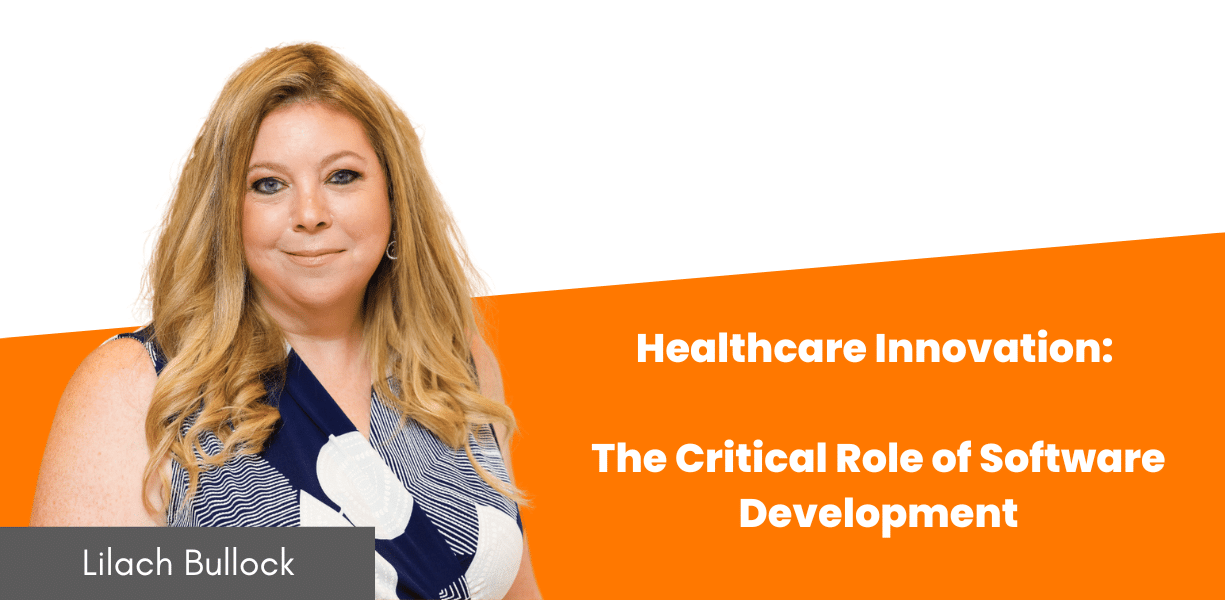Follow Lilach

Healthcare Innovation: The Critical Role of Software Development
Healthcare software development has altered how patient care is given, and results are improved in today’s digital environment. Healthcare professionals may enhance the quality and efficacy of patient treatment by using modern technology such as electronic health records (EHRs) and clinical decision support systems (CDSS). These software solutions provide healthcare practitioners access to extensive patient information, allowing them to make educated choices and deliver individualized treatment strategies. By embracing healthcare software development monitoring by a top-rated ios app development company, medical practitioners may give more accurate diagnoses, decrease prescription mistakes, and improve patient outcomes.
Increasing Operational Efficiency Through Healthcare Software Development
Efficiency is critical in healthcare organizations because it directly influences patient care and resource management. Healthcare software development is crucial for optimizing numerous operational procedures, allowing healthcare providers to streamline workflows and increase efficiency.
Hospital management systems and appointment scheduling tools, for example, automate administrative chores, decrease paperwork, and eliminate human mistakes. Implementing these software solutions allows healthcare organizations to increase staff efficiency, manage resources more efficiently, and offer patients faster and more seamless services.
Protecting Patient Data with Healthcare Software
With the increasing dependence on digital technology in healthcare, it is critical to ensure the security and privacy of patient information. This risk is addressed in custom healthcare software development by integrating powerful security features to safeguard sensitive medical data. Encryption methods, secure authentication processes, and access control mechanisms are implemented into healthcare software systems to protect patient information from unwanted access or breaches. Advanced cybersecurity practices help healthcare businesses build patient trust and confidence, increasing patient engagement and satisfaction.
Healthcare software development requires access management. Healthcare businesses utilize role-based access control (RBAC) to provide employees access. It ensures that only authorized users may modify patient data. Granular access limitations may protect patient privacy in healthcare applications.
Telemedicine Software Development Enables Remote Healthcare Services
Telemedicine has emerged as a game-changing option in healthcare, enabling patients to obtain medical treatments from anywhere in the world. Healthcare software development has played a crucial role in allowing and developing telemedicine capabilities. Healthcare practitioners may remotely diagnose and treat patients, monitor vital signs, and deliver timely consultations using telehealth software and remote monitoring equipment.
It improves access to healthcare, particularly for those living in rural or disadvantaged regions, and it also decreases the strain on physical healthcare institutions. Remote healthcare services are now more convenient, efficient, and cost-effective thanks to advances in healthcare software development. Engaging with a healthcare software development provider can ensure that these systems are customized to meet specific patient care needs, optimizing both functionality and user experience.
Healthcare Software Development Advances to Drive Healthcare Innovation
Healthcare is constantly developing, and healthcare software development is at the forefront of driving industry innovation. Healthcare software solutions are pushing the frontiers of what is possible in patient care, from artificial intelligence (AI) and machine learning (ML) algorithms to wearable devices and mobile health apps. AI-powered diagnostic systems can analyze medical pictures and data to help doctors diagnose accurately.
Individuals may monitor their health measurements and manage their well-being more effectively using wearable gadgets and health-monitoring apps. The healthcare business can leverage the potential of innovation by adopting healthcare software development to enhance patient outcomes, simplify operations, and create customized healthcare experiences. By also embracing price transparency software, healthcare providers can improve negotiation outcomes and secure optimal reimbursement terms.
Conclusion
Healthcare software development has transformed the healthcare business by providing several advantages and effects. Healthcare software solutions have altered how healthcare is delivered, from enhancing patient care and results to increasing operational efficiency and maintaining data security. The development of healthcare software is crucial in shaping the future of healthcare. It allows for remote healthcare services and drives innovation in the industry. Healthcare institutions can deliver high-quality, accessible, and patient-centered care in the digital era by embracing these developments.
Improve your business’s online presence by partnering with a full service digital marketing agency. This type of agency is your one-stop shop for advertising and marketing services. Learn more.

Follow Lilach















